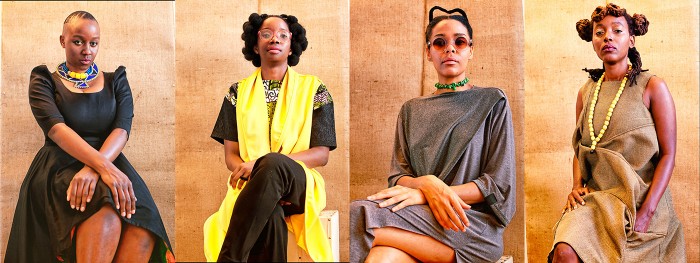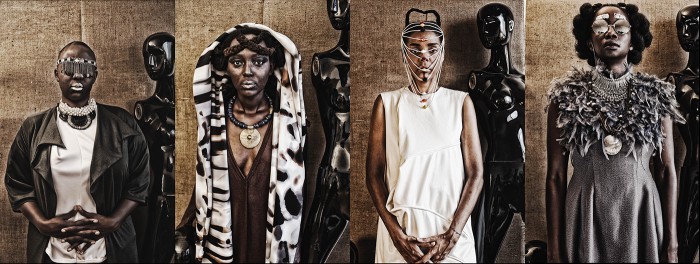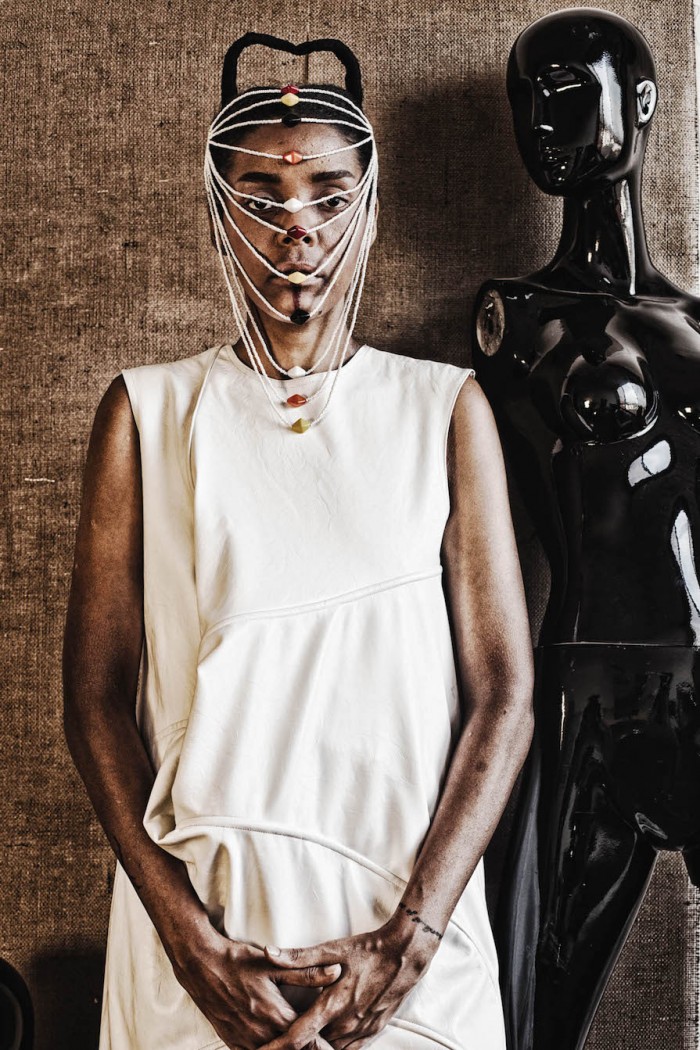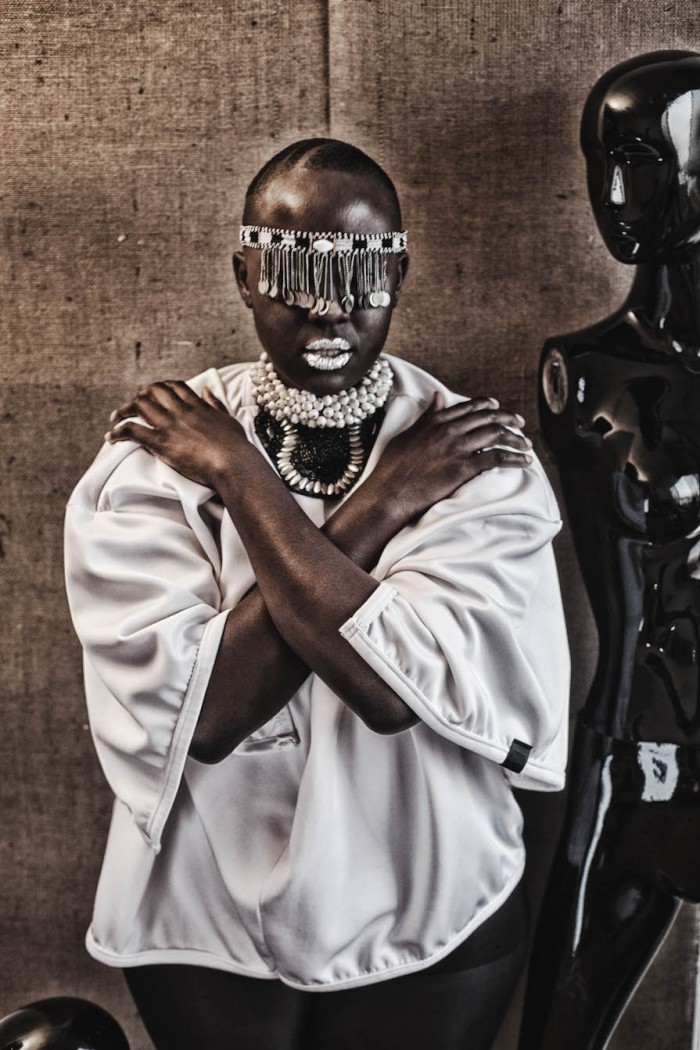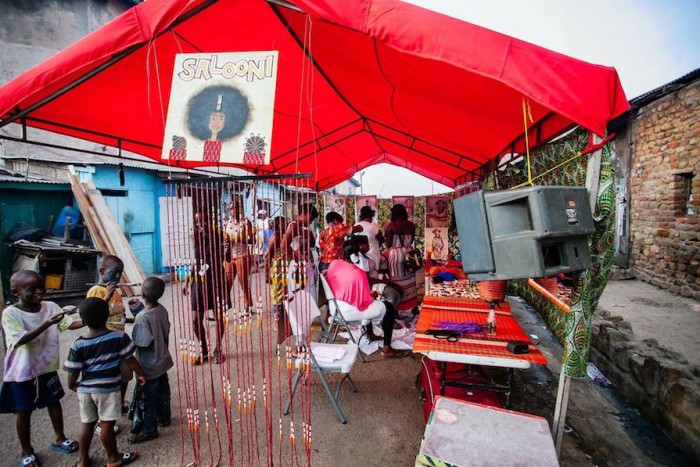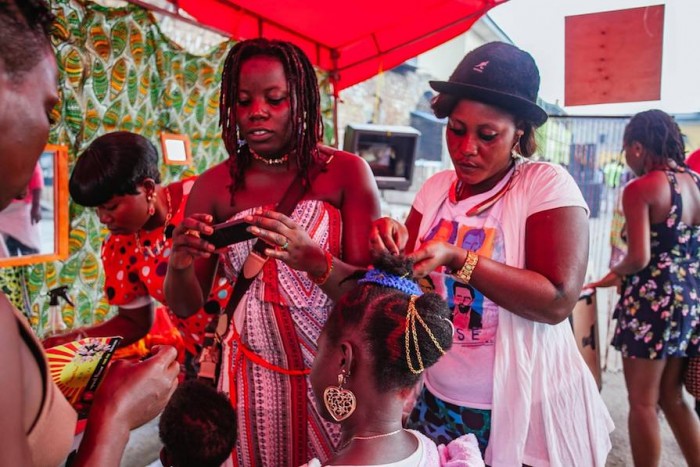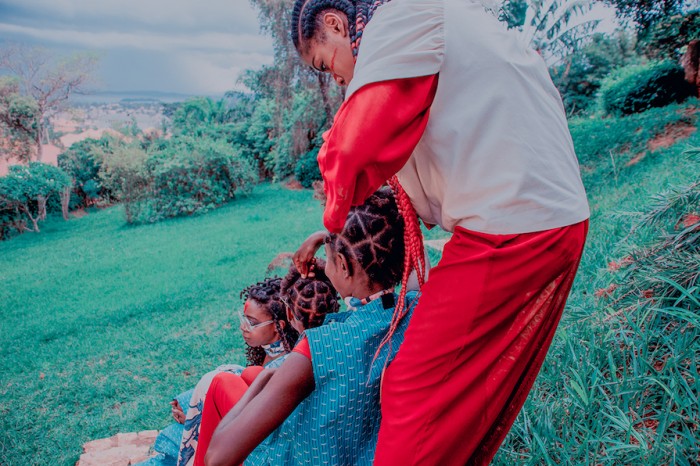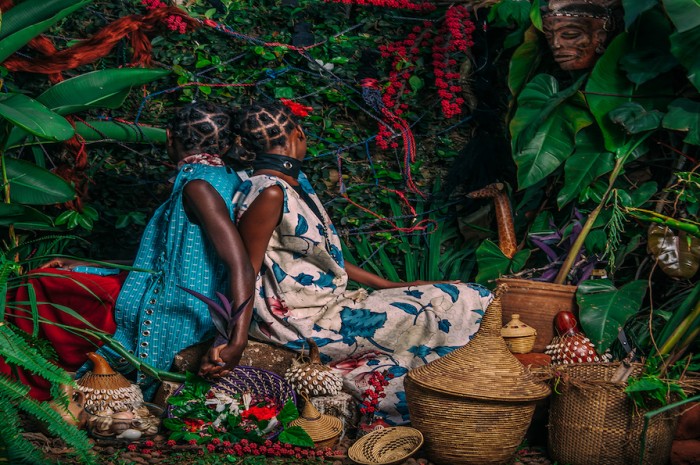What started out as a way for four creatives to spark conversations around black hair in Uganda has grown into a worldwide travelling installation. The Salooni Project was started by writer Kampire Bahana, photographer Darlyne Komukama, fashion designer Gloria Wavamunno and Aida Mbowa who is a theatre practitioner. It is a pop-up hair salon and art installation that explores the politics woven through black hair.
At the time, the four women wanted to create a space that was free of judgement where black women are able to experience the history, culture and beauty of black hair through the arts.
“We wanted to give girls and women of African descent a space to explore the beauty of black hair, its history, its culture, without the pain. We want women who leave the Salooni to feel beautiful and to feel celebrated," says Bahana.
The team creates installations that function as pop-ups at different festivals. Once there they create a strong visual language consisting of set design, intricate hairstyles, fashion and jewellery to make striking imagery that grab people's attention.
Other performances like theatre, spoken word as well as short film form part of the installations. Everything shown during the installations takes the audience on a journey through years of systemic oppression but always ending off with hope.
The project began in Uganda, but has since had pop-ups at other festivals including in Ghana, Burkina Faso, Rwanda and the UK. During the later two installations attendees were not only able to view the work but also got free hairstyles and cuts from professional hair stylists.
The artists also focus on the ritual and care of black hair as well as dispelling the negative notions of black hair not only for western cultures but also in the black community.
Although there is still a stigma attached to what people perceive as "good hair" among black people, conversation around the internet, especially among young people, is helping black women to reclaim their narrative around what constitutes beautiful or good hair.
It is no longer taboo to see images of people wearing and celebrating their hair in whatever form whether it is through wearing a wig or an afro, keeping it short, in braids, etc.
“Every time we do an installation we are reminded how important and necessary spaces like Salooni are, and we are privileged to do the work we do,” says Kampire. The group aspires to take the installation to even more spaces around the world as well as to do real life interventions.
The artists are currently working on a photobook to document their work.
Salooni (Final Cut)
Uploaded by Nzinga Effect on 2018-04-17.
More on art and photography:
Thandiwe Msebenzi uses photography to expose the consequences of misogyny
Photographs capture the dangerous practice of wine collecting in Namibia
Photographer documents a French community living completely off the grid

